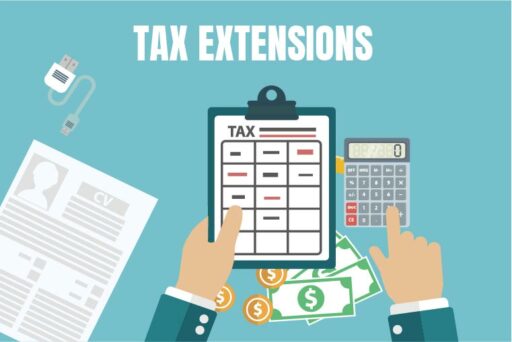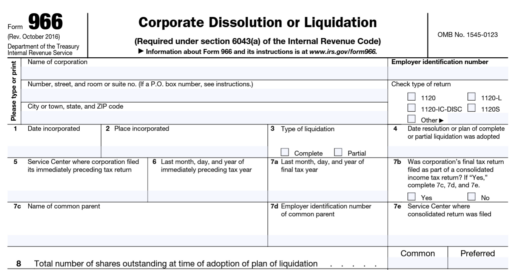To start a business in North Carolina, you need to follow several steps and fulfill specific requirements. North Carolina is a pro-business environment with a 2.5% corporate income tax rate, making the state one of the nation’s most competitive tax environments for businesses.
In this guide, you’ll learn everything you need to know about how to start a business in North Carolina, including if it’s a good location for your business, a step-by-step guide on opening your business, and even how to close your business should it come to it.

Key Takeaways
- North Carolina is recognized for its pro-business environment. It is ideally suited for businesses to thrive. With a 2.5% corporate income tax rate, North Carolina has the nation’s most competitive business tax environment. Additionally, starting in 2025, the tax rate will drop to 2.25% and decrease gradually until it ultimately reaches 0% in 2030.
- Expansion is less expensive in North Carolina because business costs there rank among the lowest in the nation, making the state a more profitable place to work.
- North Carolina businesses lead the nation in innovation with 96 percent patent growth over the past 10 years. With a commitment to long-term sustainability, North Carolina is a top state for solar and wind power production and is home to more than 1,700 clean energy firms.
- North Carolina has a favorable legal and regulatory environment, which means businesses can reach new heights faster.
Is North Carolina a Business-Friendly State?
North Carolina is generally considered to be a business-friendly state. It offers several advantages that make it an attractive location for businesses. Some factors contributing to North Carolina’s reputation as a business-friendly state include:
Low Tax Burden
North Carolina has a relatively competitive tax environment. The state has been reducing its corporate income tax rate over the years, with the 2023 corporate income tax rate at 2.5%.
Additionally, the personal income tax rates are relatively moderate compared to some other states, coming in at a flat rate of 4.75% in 2023. For North Carolina’s current tax rates, visit the Tax Foundation website.
Business Incentives
North Carolina provides various incentives to attract and retain businesses. These incentives can include
- Tax credits,
- Grants,
- Workforce training programs,
- Infrastructure assistance
In addition, the state has programs in place to support businesses in specific industries and sectors.
Strategic Location and Infrastructure
North Carolina’s location along the East Coast of the United States provides businesses with access to a large consumer market. The state has a well-developed transportation infrastructure, including major highways, airports, and seaports. It also has research institutions and a skilled workforce.
Diverse Economy
North Carolina has a diverse economy with strengths in the technology, finance, healthcare, manufacturing, and agriculture sectors. This diversification provides businesses with opportunities across different industries.
Supportive Business Environment
North Carolina has a pro-business regulatory environment with a streamlined business registration process and favorable laws for businesses. The state has taken steps to reduce bureaucracy and promote entrepreneurship.
Quality of Life
North Carolina offers a high quality of life, with vibrant cities, scenic landscapes, and a range of recreational and cultural amenities. This can help businesses attract and retain talented employees.
While North Carolina has business-friendly aspects, it’s important to note that every business’s experience can vary based on industry, location within the state, specific business needs, and economic conditions.

What Do I Need to Start a Business in North Carolina?
To start a business in North Carolina, you must follow several steps and fulfill specific requirements. While it may seem like a lot, we’ve broken the process of how to start a business in North Carolina into a few simple steps.
Choose a Business Structure
Decide on the legal structure for your business, such as a sole proprietorship, partnership, limited liability company (LLC), or corporation. Consider consulting with an attorney or a business advisor to determine the best structure for your needs.
Choose a Business Name
Select a unique name for your business that complies with North Carolina’s naming rules. Ensure the chosen name is available and not infringing on any existing trademarks. You can search for name availability on the North Carolina Secretary of State website.
Register Your Business
Register your business with the North Carolina Secretary of State. The registration process varies depending on the business structure. For example, LLCs and corporations must file articles of organization or incorporation, while sole proprietors and partnerships typically operate under the owner’s or partners’ names.
Obtain an Employer Identification Number (EIN)
If you plan to hire employees or form a partnership or corporation, you must obtain an EIN from the Internal Revenue Service (IRS). You can apply for an EIN online through the IRS website.
Determine Licensing and Permit Requirements
Some businesses in North Carolina may require specific licenses or permits to operate legally. The requirements vary depending on the nature of your business activities. The North Carolina Department of Commerce or local county and city offices can provide guidance on the licenses and permits applicable to your business.
Register for State Taxes
Register with the North Carolina Department of Revenue for state taxes, such as sales tax (if applicable) and income tax withholding (if you have employees). You can register online through the North Carolina Department of Revenue website.
Research and Secure Financing
Determine your business’s financial needs and explore funding options such as self-financing, loans, grants, or venture capital. Create a comprehensive business plan to present to potential investors or lenders.
Understand Employment Responsibilities
Familiarize yourself with employment laws, including workers’ compensation insurance requirements, unemployment insurance, and federal and state employment regulations. Ensure compliance with these laws when hiring employees.
Obtain Business Insurance
Consider obtaining insurance coverage to protect your business from liability, property damage, or other risks. Common types of insurance include general liability insurance, property insurance, and workers’ compensation insurance.
Develop an Accounting System
Establish a bookkeeping and accounting system to track your business’s finances accurately. Consider consulting with an accountant or using accounting software to manage your financial records.
Consider Additional Requirements
Depending on the nature of your business, there may be additional requirements or regulations to meet. Research industry-specific regulations, zoning ordinances, or health and safety requirements that apply to your business activities.
It’s essential to consult with professionals such as an attorney, accountant, or business advisor to ensure compliance with all legal and regulatory obligations when starting a business in North Carolina.
Which Forms Do I Need to Start a Business?
Luckily, there are only two forms that you need to worry about when you start a business in North Carolina. The form you use depends on whether you are starting an LLC or a corporation.
- Limited Liability Company Articles of Organization (Form L-01)
- Corporation Articles of Incorporation (Form B-01)
What Do I Need to Do Business in North Carolina as an Out-of-State Company?
Due to North Carolina’s pro-business environment, you may be an out-of-state company looking to do business there. You need to follow several steps to ensure compliance with state regulations. Here’s a general guide to help you navigate the process:
Determine Business Activities
Determine the nature and scope of your business activities in North Carolina. This will help you understand the legal requirements and determine if you need to register your business in the state.
Entity Registration
If you plan to establish a physical presence in North Carolina, such as an office or a store, you may need to register your business entity with the North Carolina Secretary of State. This applies to corporations, LLCs, and other formal business structures. You must file the necessary formation documents and pay the required fees.
Foreign Entity Registration
If your out-of-state company already exists and you wish to conduct business in North Carolina, you will likely need to register as a foreign entity with the North Carolina Secretary of State. This process involves filing the appropriate registration forms and paying the required fees. It ensures that your out-of-state company can legally operate within North Carolina.
Obtain an EIN
Apply for an Employer Identification Number (EIN) from the Internal Revenue Service (IRS). This identification number is required for various tax and reporting purposes and is necessary if you plan to hire employees or establish certain business accounts.
Register for State Taxes
Register with the North Carolina Department of Revenue for state taxes. This includes sales and use tax registration if your business sells tangible goods or specific services. You will need to collect and remit sales tax per state regulations.
Understand Licensing and Permit Requirements
Determine if your business requires specific licenses or permits in North Carolina. The requirements vary depending on the type of business you operate. Consult the North Carolina Department of Commerce or local county and city offices to identify the necessary licenses or permits.
Compliance with Employment Laws
Familiarize yourself with North Carolina’s employment laws, including wage and hour requirements, workers’ compensation, and other regulations. Ensure you understand your responsibilities as an employer and comply with these laws.
Business Insurance
Consider obtaining business insurance coverage to protect your company from liability, property damage, or other risks. General liability insurance and workers’ compensation insurance are common types of coverage.
Seek Professional Advice
Consult with an attorney, accountant, or business advisor knowledgeable about North Carolina’s regulations and requirements. They can guide your business needs and help ensure compliance with all legal obligations.
Additional steps and requirements may apply based on your specific business activities and industry. It is essential to conduct thorough research and seek professional advice to ensure you meet all the necessary legal and regulatory obligations when doing business in North Carolina as an out-of-state company.

What Taxes Businesses Required to Pay in North Carolina?
Unfortunately, corporate income tax is only one of the taxes you need to worry about when you start a business in North Carolina. Depending on the size and structure of your business, you may need to pay the taxes and fees below.
Sales and Use Tax
Every retail or wholesale merchant selling, renting, or leasing taxable tangible personal property in North Carolina must obtain a Certificate of Registration unless specifically exempt by statute.
Every business that buys taxable tangible personal property, services, or certain digital property for storage, use, or consumption in this State where the correct amount of sales tax has not been paid is required to file and remit the use tax due. A business must register to file and remit use tax unless:
- The business is already registered to file and pay sales tax and is therefore already registered to remit use tax, or
- The business has paid its vendors all North Carolina sales and use taxes due on its purchases.
Please note that all remote sellers having gross sales above one hundred thousand dollars ($100,000) or two hundred (200) or more separate transactions sourced from North Carolina in the previous or current calendar year must register to collect and remit sales & use tax.
A wholesale merchant must register and obtain a Certificate of Registration before engaging in business in this State. A wholesale merchant that does not make taxable retail sales or purchases should select “wholesale only” when registering, and the person will not be required to file sales and use tax returns.
Privilege License Tax
The state privilege license tax is applicable to certain professions in North Carolina and should be applied for before business commences. The privilege license is not a certification the holder is qualified to perform a specific business or profession. It is a tax for the privilege of doing business in the state.
Franchise and Income Tax
A franchise tax is imposed on corporations for the privilege of doing business in North Carolina. This tax is due annually if the corporation remains incorporated, domesticated, or continues to do business in the state.
State and Local Tax Forms
As a business owner, you are responsible for listing your business personal property with the County Tax Assessor. You must also provide the assessor with information concerning any real property improvements, such as adding a new structure.
State Withholding Taxes
State withholding taxes must be withheld from employee wages and remitted to the North Carolina Department of Revenue.
Unemployment Insurance Tax
The North Carolina unemployment insurance program is designed to provide temporary economic benefits to eligible workers.
Worker’s Compensation
The Workers’ Compensation Act is administered via the North Carolina Industrial Commission. It requires any employer with three or more employees to provide workers’ compensation coverage. Any sole proprietor or partner of a business whose employees are eligible for benefits may also be covered as an employee.
Federal Taxes
The Internal Revenue Service (IRS) requires every employer who pays wages to one or more employees to file an application for an employer identification number (EIN).
Other Reporting Requirements and Regulations
While the following aren’t additional fees or taxes, they are reporting requirements and regulations you should be aware of when you start a business in North Carolina. You must follow the below requirements to avoid fees and penalties.
- New Hire Reporting Guide – Federal and state law require employers to report newly hired and re-hired employees to the North Carolina State Directory of New Hires.
- Occupational Safety and Health Act (OSHA) of North Carolina – The North Carolina Department of Labor administers and implements the Occupational Safety and Health Act (OSHA) of North Carolina. OSHA standards protect workers from unsafe and unhealthy working conditions.
- Federal Occupational Safety and Health Act (OSHA) – The U.S. Department of Labor administers and enforces the federal Occupational Safety and Health Act (OSHA) rules designed to protect workers from workplace hazards.
- Employment Eligibility Verification – The Immigration Reform and Control Act of 1986 requires employers to verify employment eligibility by completing and retaining a one-page Employment Eligibility Form (Form I-9).
Does North Carolina Require the Collection of Sales Tax on Software-as-a-Service (SaaS)?
Good news for anyone looking to start a business in North Carolina! Sales tax generally doesn’t apply to Software-as-a-Service (SaaS). According to North Carolina Sales and Use Tax Bulletin 19-3, SaaS is a computer software distribution model where consumers access software electronically over the Internet without downloading it to their computers. The state doesn’t impose sales or use tax on charges for such services.
There is an exemption for software designed for computer systems, operating programs, or application software. North Carolina Tax Bulletin 19-3 further confirms that SaaS is usually not taxable. For additional guidance, Private Letter Ruling 2021-0007 clarifies the taxability of Software-as-a-Service.
When are North Carolina Business Taxes Due?
Franchise and income tax returns are due on the 15th day of the fourth month following the close of the income year. An income year ending on any day other than the last day of the month is deemed to end on the last day of the calendar month ending nearest to the last day of the actual income year.
Income tax returns for cooperative or mutual associations are due on or before the 15th day of the ninth month following the close of the income year; however, these corporations, if subject to franchise tax, must file a franchise tax return by the 15th day of the fourth month following the close of the income year.
Certain foreign corporations, other than those with an office or place of business in the United States or an FSC or former FSC, must file their federal income tax returns by the 15th day of the seventh month instead of by the 15th day of the fourth month. North Carolina law permits these corporations to file Form CD-405 on the 15th day of the seventh month instead of by the 15th day of the fourth month.

How Do I Close My Business in North Carolina?
Deciding to close your business is never an easy decision. However, if and when you decide to close your business in North Carolina, you want to do it properly to avoid owing any additional fees or taxes.
Here is a guide to filing for dissolution to help you through the process:
Dissolution Decision
Make a formal decision to dissolve the business. This typically requires approval from the company’s owners or shareholders, as outlined in the governing documents (such as articles of incorporation for corporations or operating agreements for LLCs).
File Dissolution Documents
Prepare and file Articles of Dissolution documents with the North Carolina Secretary of State. The specific documents required will depend on the business structure:
- Corporations – File Articles of Dissolution with the Secretary of State’s office. You may also need to obtain a Certificate of Account Status from the North Carolina Department of Revenue.
- Limited Liability Companies (LLCs) – File Articles of Dissolution or Certificate of Cancellation, depending on the circumstances, with the Secretary of State. Obtain a Certificate of Account Status from the Department of Revenue.
- Partnerships – Partnership dissolution procedures vary based on the type of partnership (general partnership, limited partnership, etc.). Consult with an attorney or legal advisor to determine the specific requirements for your partnership.
Notify Tax Authorities
Inform the North Carolina Department of Revenue about the business closure. This includes canceling your sales tax account, filing final tax returns, and settling outstanding liabilities. Consult a tax professional for guidance on specific tax obligations and reporting requirements.
Notify Other Agencies
Depending on your business type and industry, you may need to notify other government agencies or regulatory bodies. Examples include canceling professional licenses, permits, or registrations with relevant state agencies or industry-specific authorities.
Settle Financial Obligations
Pay any outstanding debts, including loans, leases, and vendor invoices. Close bank accounts associated with the business and ensure all financial matters are resolved appropriately.
Notify Employees and Clients
Inform your employees, clients, suppliers, and other relevant parties about the business closure. Provide them with sufficient notice and instructions on handling any remaining business matters.
Close Business Accounts
Cancel or transfer any business-specific accounts, including utility accounts, internet services, insurance policies, and any other contracts or services tied to the business.
Maintain Records
Retain business records and financial documents as required by law. North Carolina has specific record retention periods for various types of business records. Consult with an attorney or accountant to ensure compliance with record-keeping requirements.
Seek Professional Advice
It is advisable to consult with an attorney, accountant, or business advisor experienced in business closures to guide you through the process and ensure compliance with all legal and regulatory obligations.
Closing a business involves various legal, financial, and administrative tasks. Following the appropriate procedures and seeking professional advice is essential to ensure a smooth and compliant closure in North Carolina.
Suppose you change your mind after filing the Articles of Dissolution within 120 days of the effective date of the voluntary dissolution. In that case, you may revoke the dissolution by filing Articles of Revocation of Dissolution.
Can Cleer Help Me with My North Carolina Business Tax Filings?
Looking to start a business in North Carolina? Cleer can help! Every Cleer Income Tax Package includes BOTH Federal and State income tax filings. If you do business in more than one State, each additional state is only $175 each.
For any further questions or help, email us at hello@cleer.tax.





